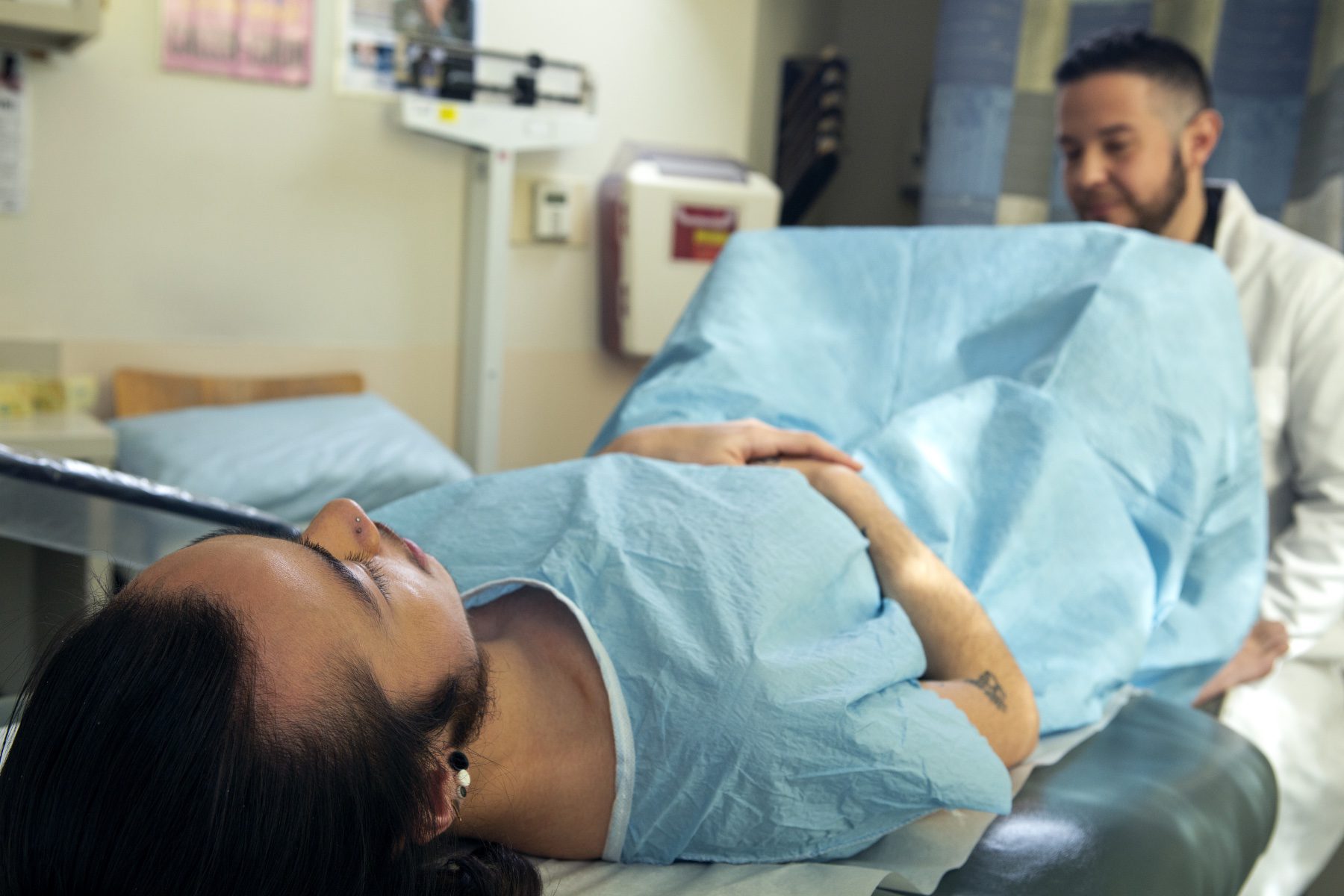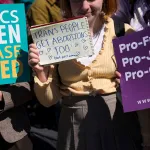Adri Pèrez can’t imagine life in Texas without Planned Parenthood.
It was at the organization’s El Paso clinic in 2018 that Pèrez found gender-affirming health care as a nonbinary person. There, Pèrez was prescribed hormones.
“It was the first time I had seen a provider who I could be completely honest with about my identity as a nonbinary person, as somebody who might want to give birth one day, as somebody who does not identify as a trans man,” Pèrez said.
That medical care could now be in peril.
On September 1, Senate Bill 8, the Texas law that effectively bars abortions after six weeks of pregnancy, went into effect. On Wednesday night, the U.S. Supreme Court formally declined to block the law. Although a lawsuit is still pending, The 19th’s Shefali Luthra previously reported that even if the law is overturned, many Texas clinics will likely still close as they face funding shortfalls caused by reduced services and threats of litigation.
LGBTQ+ advocates say closures would serve a devastating blow to transgender and queer people. On Thursday, LGBTQ+ advocates throughout the nation blasted the new law.
“The right to decide if, when and how to have a family is incredibly important in its own right, and is also inextricably intertwined with the right of all people — and particularly LGBTQ people — to define who they are, because, at their core, these rights are about personal autonomy and self-determination,” said Sharon McGowan, chief strategy officer of LGBTQ+ civil rights organization Lambda Legal.
Although the conversation around restricted abortion access in Texas has almost exclusively centered cisgender women, many reproductive health clinics provide gender-affirming medical care like hormone replacement therapy (HRT), surgery referrals and puberty blockers for teens. Such clinics also serve as critical testing and treatment sites for HIV and STDs, advocates say.
According to the Centers for Disease Control and Prevention, 44 states and Washington, D.C., have at least one LGBTQ+ affirming health center. Many do not specialize in LGBTQ+ health, and transgender care in particular can be difficult to come by, with many people forced to travel hours to access health centers.
That health care is in demand, according to a report from the National Center for Transgender Equality. The organization’s 2015 U.S. Transgender Survey, which provides some of the only national data on transgender people, found that 78 percent of transgender wanted hormones, but just 49 percent of those interviewed were able to get them.
Ash Miller, a trans person who facilitates the San Antonio Gender Association support group, has gone to Planned Parenthood for hormones.
“Up until very recently it was the only clinic in my city that offered informed consent access to HRT,” Miller said. “This made HRT accessible and affordable to me.”
Emmett Schelling, the executive director of Transgender Education Network of Texas, said said Planned Parenthood clinics have been critical in filling gaps in care for transgender people in the state.
-
More from The 19th
- As abortion ban goes into effect, Texas poised to double down with separate restrictions on abortion-inducing medications
- Texas patients may have to travel hundreds of miles for abortion access, out-of-state clinics brace for surge
- 67 abortions in 17 hours: Inside a Texas clinic’s race to beat new six-week abortion ban
“We have a lot of trans men going to Planned Parenthood clinics to receive general wellness and health checkups,” Schelling said.
Planned Parenthood also offers cervical and breast cancer screenings. That care is traditionally talked about as serving cisgender women, but transgender men and nonbinary people may also need screenings. Planned Parenthood clinics clinics often specifically offer gender-affirming checkups, removing the barriers of stigma, discrimination and gender dysphoria, LGBTQ+ advocates say.
“The other issue that’s pretty blatantly staring us in the face is trans men and trans masculine folks do need abortion care,” said Schelling.
Pèrez was one such person. At 16, they were sexually assaulted and became pregnant.
“That is not how I wanted to be a parent in this lifetime,” they said.
Pèrez was living in New Mexico and had an abortion there. Today, they advocate for reproductive rights and gender-affirming care from their home in Austin. They worry that Texas’ new law will mean the end of care for trans and nonbinary people like themself.
“I am scared for a future without abortion access, but also for a future where these other essential services aren’t able to exist in our communities, especially in El Paso,” Pèrez said.
The threat of clinic shuttering looms large across Texas as providers were forced to halt scheduling abortions in anticipation of the law. By August 30, all 11 Planned Parenthood affiliates had stopped scheduling scheduling abortion appointments for pregnancies outside the six-week window allowed by the new Texas law. In 2013, Texas passed an omnibus abortion bill that, among other things, halted abortions at 20 weeks and changed regulations for doctors and abortion clinics. The law was overturned in 2016, but not before almost half of the state’s abortion clinics closed as a result.
Barbie Hurtado, organizing and training manager for Planned Parenthood Texas Votes, the political advocacy arm of the state’s affiliate offices, said Planned Parenthood is committed to remaining open.
“If folks don’t have access to hormones at the clinic, they’re still going to get the hormones,” Hurtado said. “It might be illegal hormones. It might be hormones that harm your body, but people are still going to continue to transition. It’s just not going to be the legal way, or the clinic way. So, we’re not going to go away. We’re still going to be here. We’re still going to be fighting.”
Disclosure: Planned Parenthood has been a financial supporter of The 19th.







